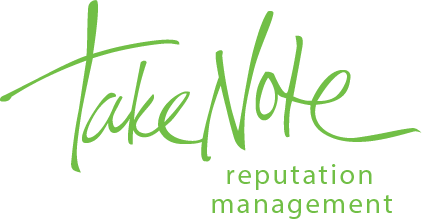With our blogs we hope to guide you and your brand to be the best version you can be for your employees, communities and of course your customers.
Last month we touched on how to instil trust in your business, this month we are looking at how to be an authentic brand and why brand authenticity is important.
We live in a digital age that sees us overloaded with marketing and advertising information, to set your business apart you need to strive for messages that are real, honest and authentic.
Consumers are no longer just satisfied with finding a quality product or service instead they want a complete experience that leaves them feeling good about the brands they are engaging with.
According to online platform Stackla ninety percent of consumers consider authenticity a key factor when deciding which brands, they support. For Millennials, Generation X and Baby Boomers authenticity is a crucial deciding factor in brand choice.
SO, WHAT EXACTLY IS BRAND AUTHENTICITY?
Brand authenticity is centred around being genuine and real. Authentic companies, are honest about their vision, mission and values. Being authentic sees companies and brands aligning what they say and how they behave with the shared perceptions of others. Being an authentic brand helps meet expectations of consumers.
According to digitalwellbeing.org there are 4 components to authenticity:
- Continuity which looks at a brand being faithful to itself,
- Credibility which refers to how true a brand remains to its consumers,
- Integrity which looks how an organisation cares and is socially responsible,
- Symbolism which looks at how a brand supports consumers in being true to themselves.
HOW DO YOU CREATE BRAND AUTHENTICITY?
Being an authentic brand starts with telling a story. Your story should link back to your history and your heritage.
When focusing on the story behind your business talk to the following points:
- Why did your business start?
- When did you open your doors?
- Why are you passionate about it? Or What are you passionate about?
- Who helped play a role in growing the business?
- What did your key players bring to the company that changed it or helped it reach its goals?
- What challenges have you faced? and how have you overcome them?
- What’s your ultimate vision for your business?
This story needs to be shared with employees, new members of the business, customers and the community within which you operate.
Next you need to honour the past.
This refers to the past of the business, the business premises or a key element such as recipes passed down by your great-grandmother. When a brand honours it’s past it enhances the authenticity of your business through the creation of emotional ties to history.
However, on the other hand if your business is brand new, that is also okay because you are creating the memories that will become the past eventually.
Then you need to share your brand personality.
This involves both yours and your employees’ stories, because you are all an integral part of the business and brand, ensure that the stories are real. Use available platforms such as websites and social media to share photos and biographies of your team, remember to have fun with this and show your personalities. Another great way to show your teams authenticity is to share team photos, outings and events. Remember to be real and encourage your team to do the same.
One of the most important things you need to do is be a part of your community.
This could be the community within which you operate or even an online community, either way you need to ensure that that your brand is interacting in that community. Consumers nowadays want to buy from brands they feel a connection with. In order to show your authenticity to your community, get involved in issues that they care and are passionate about.
Lastly and most importantly be honest.
Your authenticity needs to be real; customers should never have to find out that you are not living up to the standards you are promoting. If a situation ever arises where you have been negligent on your authenticity own up to it and be honest.
We have touched on what brand authenticity is and how to create brand authenticity BUT –
Why is brand authenticity so important?
With today’s political climate and technology driven world being an authentic brand is a key factor that can help your business be successful and can bring benefits, not only to your customers, but to your brand and your employees.
Being guided by honesty also makes it easier for brands to communicate about their purpose and endorse their vision and mission. This provides opportunity to create innovative marketing and sales campaigns that make you stand out from the competition.
Starting out authentic and carrying that through your actions will help you create a loyal audience, build and maintain a good reputation in building a more successful brand. Brand authenticity matters to your consumers because for most people, personal authenticity matters. By selecting and being loyal to these authentic brands, people are expressing something about their personal authenticity.
To further add to this notion of brand authenticity we look at The Ministry of Common Sense, Martin Lindstrom’s, the Danish author and Time magazine Influential 100 Honoree, most recent book where he provides us with a concept, “treat others as you would like to be treated.” He explains this is an anomaly in many companies and consumers usually only have a good or remembering experience when a company went above and beyond what we expected. If your brand is to maintain its authenticity, those once in a “blue moon” moments need to become regular and second nature to you and your employees.
To conclude, the once popular notion of “Fake it until you make it?” no longer applies. We live in a highly connected digital environment and your brand can’t “make it”, without brand authenticity. Consumers have become savvier than ever and this means your brand needs to present itself in the most honest and real way possible.







